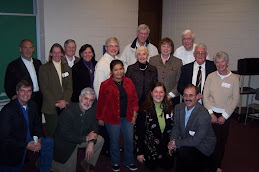The Editorial Group / New Catholic Times
Note: After 30 years of embodying the vision of an independent Canadian Catholic voice focused on the link between faith and social justice in both church and society, Catholic New Times will cease publication with the present issue.
 The facts are that John Paul I lived only thirty-three days as Pope and that John Paul II, elected at the relatively young age of 58, served as Bishop of Rome for 26 ½ years. During that time, John Paul II pursued a conscious plan to transform the hierarchy into a rigid, authoritarian body, utterly dependent on the Vatican for rewards and punishments of every kind.
The facts are that John Paul I lived only thirty-three days as Pope and that John Paul II, elected at the relatively young age of 58, served as Bishop of Rome for 26 ½ years. During that time, John Paul II pursued a conscious plan to transform the hierarchy into a rigid, authoritarian body, utterly dependent on the Vatican for rewards and punishments of every kind.With few exceptions, that plan has succeeded.
So begins Richard McBrien's column in the latest National Catholic Reporter.
One must respect the analysis of the Crowley-O'Brien professor of theology at Notre Dame. For decades the much admired theologian, arguably the finest ecclesiologist in the Catholic firmament, has placed his abundant talents at the service of the faithful. For decades he has taught in summer schools and written weekly columns on the church. As those years have gone by and as the nature of the American hierarchy (and most others) changed, McBrien has seen many dioceses under the direction of these conservative bishops deep six his column. These institutional "leaders", imposed on dioceses with no input from the baptized and paling in theological expertese to theologians like McBrien, saw fit to protect the lay citizens of the Church from the latter's "wild" opinions.

As the decades of the John Paul ll pontificate went by theologians and indeed virtually most theological professional societies grew weary of the thinly disguised attempts to rewrite the Second Vatican Council. Theologian after theologian was turfed from Catholic theologates by John Paul ll and his enforcer Josef Ratzinger, the latter being particularly cruel as he wielded his ecclesial axe.

As the decades of the John Paul ll pontificate went by theologians and indeed virtually most theological professional societies grew weary of the thinly disguised attempts to rewrite the Second Vatican Council. Theologian after theologian was turfed from Catholic theologates by John Paul ll and his enforcer Josef Ratzinger, the latter being particularly cruel as he wielded his ecclesial axe.
Both could have taken their cues from a much loved deceased Canadian bishop who allowed a thousand flowers to bloom in his diocese and said often that he had no right to impose his opinion on the Catholic people. He trusted the "sensus fidelium" and in the case of the last two pontificates, peer review could have admirably separated the authentic wheat from the ephemeral chaff.
As McBrien points out, quoting Charles Curran, moral theology in particular has paid a stiff price here. Creative Catholic moralists bailed from Catholic seminaries and plied their trade elsewhere resulting in a standstill in this field. The only lens acceptable for moralists was that of John Paul ll.
Now as McBrien suggests these bishops have been put in place as "a rigid authoritarian body". As the theologian has quipped elsewhere "they answer to a constituency of one: Rome."
One of the huge ironies here is the beatification recently of Cardinal Newman over which Pope Benedict presided---the same Newman who reminded us that the Spirit is given to the entire Church not a rump of celibate men in Rome or elsewhere. And the "rigid authoritarian bodies" are having a most difficult time getting their mitred heads around this fact. Few if any have any interest in listening to the wisdom of their baptized co-religionists. This is debilitating for the Church at large, its growth and evolution.
While McBrien is undoubtedly right in his observation, the salient fact is that this has not made the Church any more credible. The reality as Charles Curran says is "that many people have left the church not because of disagreements with basic areas of faith and Catholic eucharistic celebration, but often because of issues mentioned above (feminist and liberation theologies), as well as the pedophilia crisis."
Curran continues:
Our church today is in serious trouble, and not just in Europe and the United States, although the problems there are great and need to be recognized as such and addressed.
Indeed, the second largest religious denomination in the United States today consists of Catholics who are no longer active in the church. The sense of alienation from the church is especially acute among women.
In his encyclical Populorum Progressio Pope Paul Vl reminded us that "Evangelization must touch life."
That life it must be said is not in repeating dicta from Rome. It lies in the ignored but still burning embers of the Catholic faithful.

No comments:
Post a Comment